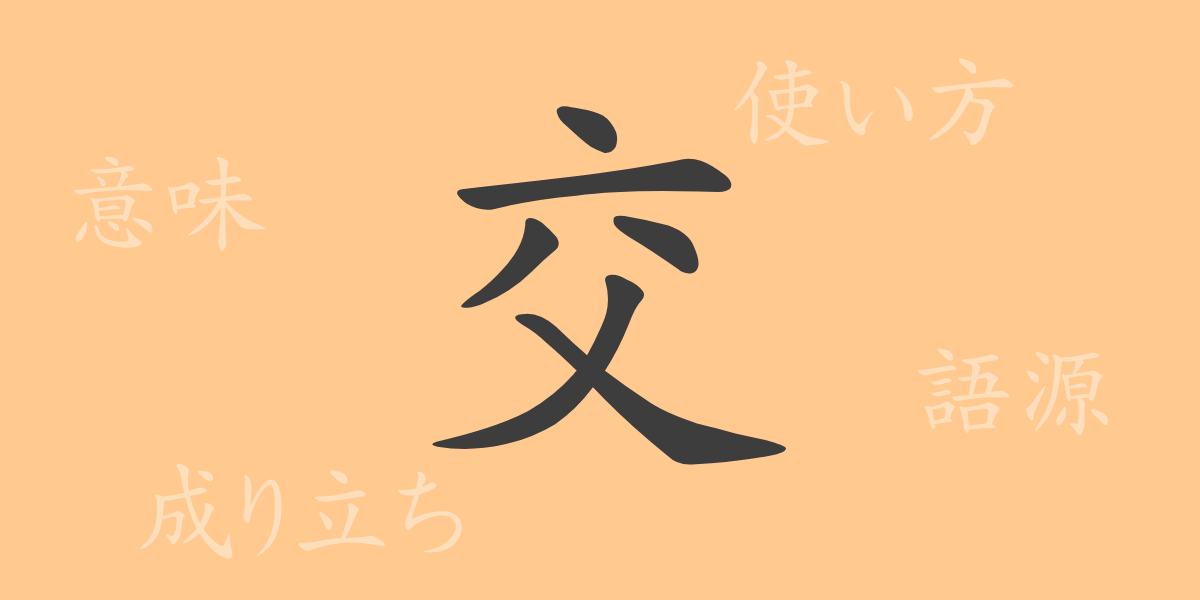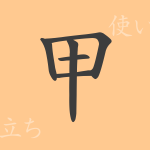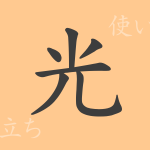The Japanese kanji “交(こう)” supports the rich world of Japanese expression. The depth of meaning and broad usage of this single character are closely tied to the daily lives of the Japanese people. In this article, we will explore the origins, meanings, usage, readings, stroke count, and radical of “交(こう)”, as well as idiomatic expressions and proverbs that include this character. By the end, you will be one step closer to becoming an expert on the kanji “交(こう)”.
Origins of 交 (Etymology)
The kanji “交(こう)” originates from ancient China, where it depicted the intertwining of legs, symbolizing the action of crossing or intertwining. This idea of interweaving gave rise to meanings related to human interactions and the crossing of things. Additionally, it represents the intersection of roads, further expanding its range of meanings.
Meanings and Usage of 交
The kanji “交(こう)” encompasses meanings such as “exchange”, “interact”, and “intersect”. It can denote relationships between people, the intertwining of things, or even the transition from one thing to another, as in “交代(こうたい)” meaning “rotation” or “taking turns”.
Readings, Stroke Count, and Radical of 交
The kanji “交(こう)” has multiple readings, reflecting its rich form and meaning.
- Readings: The on’yomi (音読み) is “コウ(こう)”, and the kun’yomi (訓読み) includes “まじ.わる(majiru)”, “まじ.える(mazieru)”, “ま.じる(majiru)”, “まじ.る(majiru)”, “ま.ざる(mazaru)”, “ま.ぜる(mazeru)”, and “こもごも(komogomo)”.
- Stroke count: “交(こう)” consists of 6 strokes.
- Radical: The radical is “亠(なべぶた, nabebuta)”, but “交(こう)” itself is also used as a radical.
Common Phrases, Idioms, and Proverbs Using 交
There are many idiomatic expressions and proverbs that include the kanji “交(こう)”, each illustrating the depth of the Japanese language.
- 交際(こうさい): Meaning social interactions or relationships between people.
- 交換(こうかん): Referring to the act of exchanging things mutually.
- 交流(こうりゅう): Denoting the interaction and exchange between people or cultures.
- 交通(こうつう): Referring to the movement of people or goods, and the systems or means of transportation.
- 交易(こうえき): Describing trade between countries.
One proverb, “交わるは危ういもの”, warns of the dangers and caution needed when interacting with others.
Summary of 交
The kanji “交(こう)” is a simple yet multifaceted character frequently used in Japanese. It is deeply ingrained in the culture and daily lives of the Japanese people. Through this explanation, we hope you have gained a deeper understanding of the meanings and usage of “交(こう)”, and that this knowledge will enhance your daily communication and learning.

























